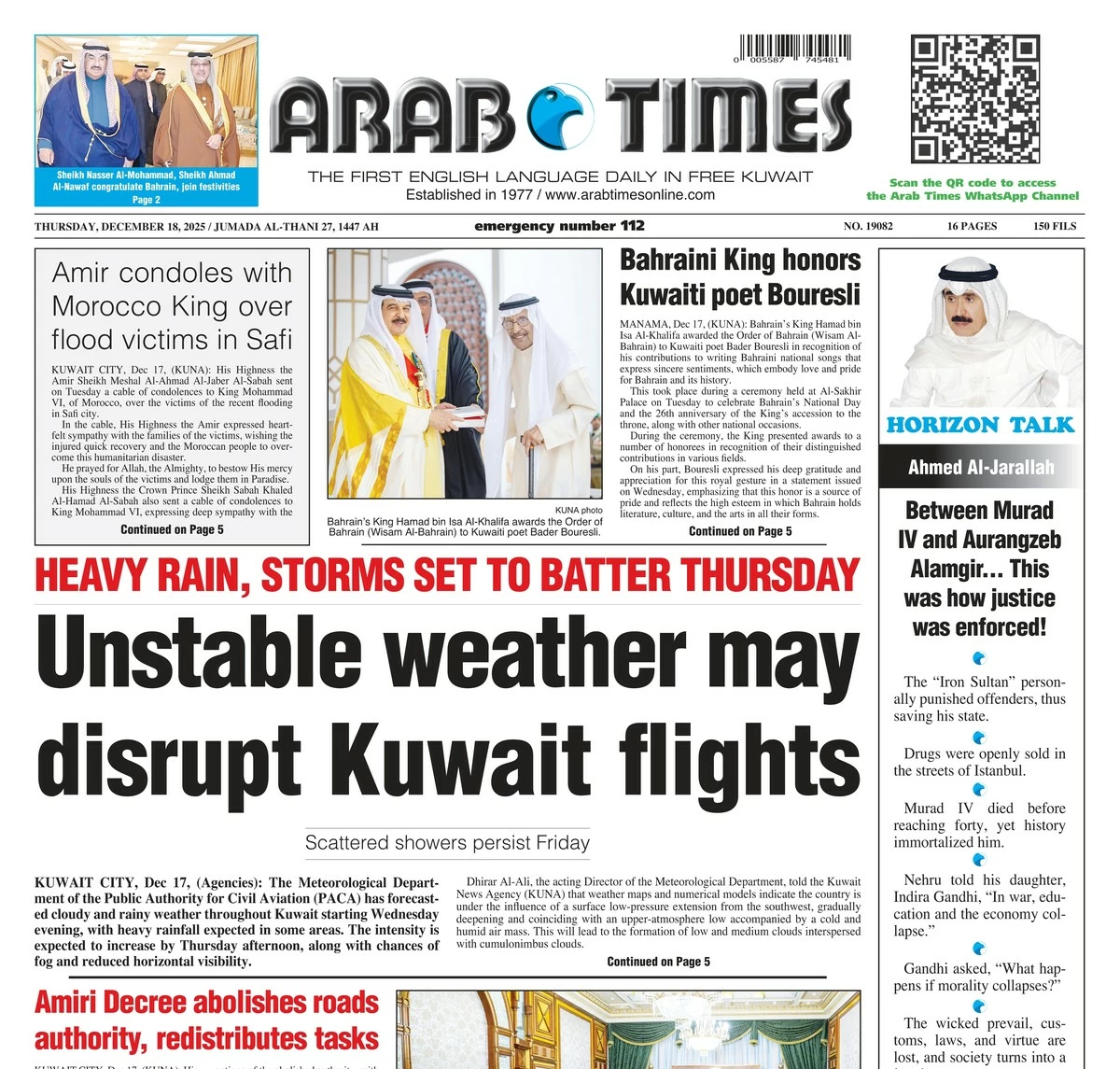05/01/2025
05/01/2025
One of the aspects often overlooked in Arab countries is the vital role that Christians have historically played and continue to play in our societies. Despite their significant political, cultural, educational and national contributions -- especially in Syria, Lebanon, Iraq and Egypt -- there is a persistent effort to marginalize them.
In the aftermath of the unexpected earthquake and the abrupt disappearance of Assad’s regime in Syria -- an event that felt like a dream to many -- Syrians began to cautiously hope for a brighter future.
However, the uncertainty surrounding the new leadership has left many, particularly Christians who make up 10 percent of the population, apprehensive. This unease was poignantly expressed by Patriarch John X during his New Year’s Mass, where he eloquently addressed the significance of Christian heritage in the region.
His speech highlighted the deep roots of Christianity in the Levant, evoking images of Antioch, where disciples were first called Christians; the snow-covered peaks of Lebanon; the River Jordan, where Christ was baptized; and Damascus, where Paul encountered his transformative vision.
He spoke of the enduring Christian presence across the region -- from the cedars of Lebanon to the olive trees of Idlib, from the ancient cities of Tyre and Sidon to the iconic landmarks of Baalbek and the Bekaa Valley.
Patriarch John X emphasized that Christians in this region are not merely inhabitants but integral contributors. They are the ‘wheat of Christ’, rooted in this land, producing its bread of thanksgiving and wine of glorification. They are an inseparable part of the cultural and spiritual fabric, bound by shared histories and futures with their Muslim brethren.
The Patriarch’s message also underscored the necessity for a new social contract based on citizenship, equality and mutual respect, free from the constraints of sectarianism. He called for a modern constitution that upholds the values of inclusion and pluralism, one that reflects the openness of Levantine Islam and the antiquity of its Christianity.
Reflecting on the Church's history, Patriarch John X recalled the contributions of figures like Patriarch Elias IV Moawad, who, at the Islamic Summit in Lahore in 1974, represented Arab Christians and Muslims with a unified voice for Jerusalem. This legacy of unity, he argued, is a testament to the shared life and solidarity between Muslims and Christians in the region.
In conclusion, the Patriarch extended a call for collaboration to the new Syrian leadership under Mr. Ahmad Al-Sharaa. He reaffirmed the readiness of Christians to work toward rebuilding Syria but expressed disappointment at the lack of official outreach from the new administration.
Despite this, he welcomed them to continue the tradition of visiting the Patriarchal House of the Mariamites of Damascus, a symbol of the enduring bond between the Church and the Syrian state.
May this new chapter in Syria’s history be one of hope, justice and harmony for all its people.
Does anyone hear this voice of reason and wisdom? When will our sectarian, tribal, religious and racist conflicts stop? Is there an end to this backwardness?
e-mail: [email protected]



